Popular Foods That May Cause Lasting Damage to Your Gut, According to Science
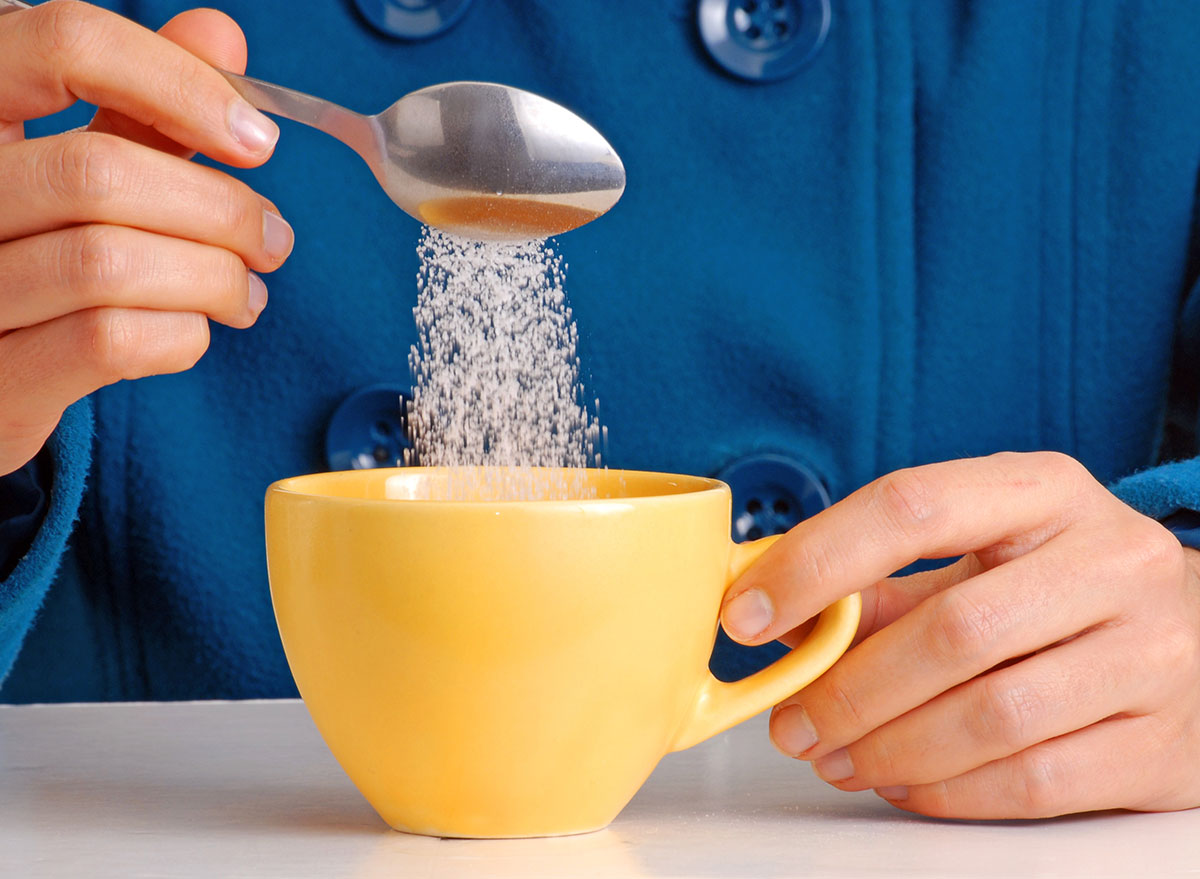
Any food can be a part of your diet, as long as you eat it in moderation. Your favorite sugary dessert, fast-food cheeseburger, and even a glass of wine can all fit into a balanced diet. However, it’s when these popular foods are eaten in excess where lasting damage can occur in your gut. While these items may be tasty, they aren’t doing much for promoting good gut health for the long term.
So which items should you be aware of? We spoke with a few registered dietitians about different popular foods that cause lasting damage to your gut if you eat them in excess. Here’s what they had to say, and if you’re looking for better-for-you food options, check out our list of 100 Easiest Recipes You Can Make.
Refined sugars
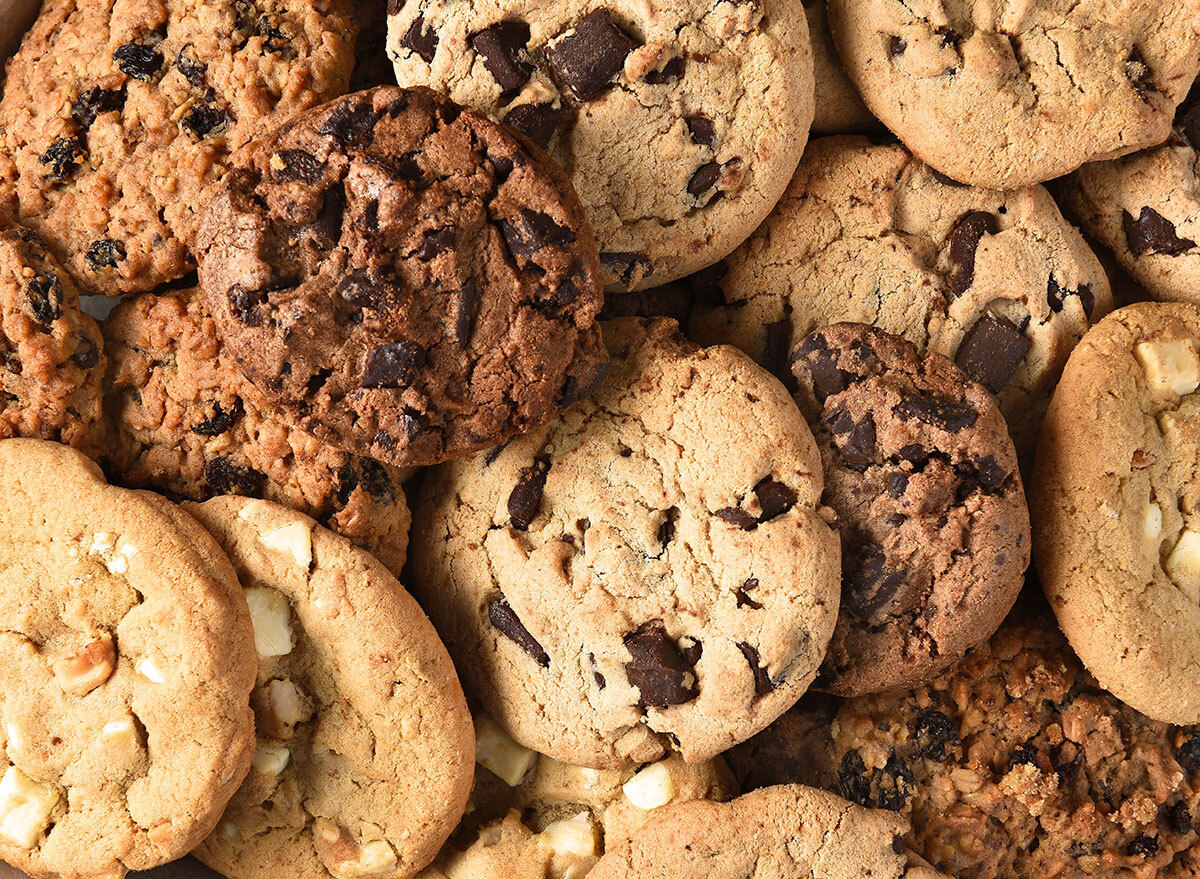
“Refined sugars, like cookies, candy, cakes, and sweetened beverages can cause damage to your gut,” says Theresa Gentile, MS, RDN, Owner of Full Plate Nutrition and Media Spokesperson for the NY State Academy of Nutrition and Dietetics. “These sugars, especially high fructose corn syrup, decrease the number of good bacteria in the gut and increase the number of bad bacteria. This negative result causes inflammation which can affect the permeability of the gut wall. This can lead to inflammatory disorders, such as obesity and cardiovascular disease.”
Don’t know if your favorite foods have HFCS? Here are 23 Surprising Foods That Contain High Fructose Corn Syrup.
Processed foods
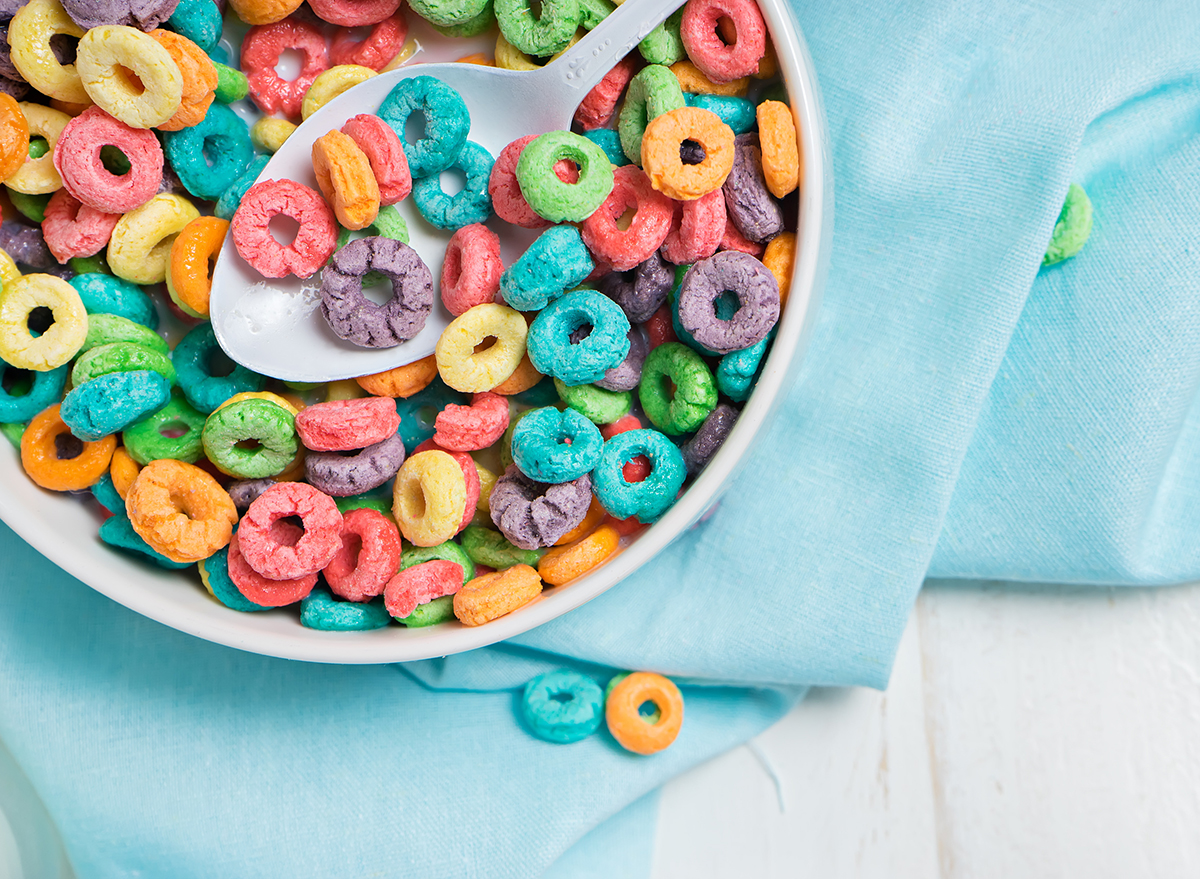
“The most damaging food to the gut is sugar, high fructose corn syrup, and all processed foods,” says Jamie Feit, MS, RD, and expert at Testing.com. “Anything your great-grandmother wouldn’t recognize as food would be smart to avoid to protect your gut.”
“A diet high in ultra-processed foods [is] high in refined grains, added sugar, and salt and low in fiber and antioxidants which are good for your gut,” says Lisa Young, PhD, RDN and author of Finally Full, Finally Slim. “A diet high in ultra-processed foods and sugar may reduce the gut-friendly bacteria.”
Here’s Why You Need Antioxidants In Your Diet—And How To Eat More Of Them.
Deep-fried foods
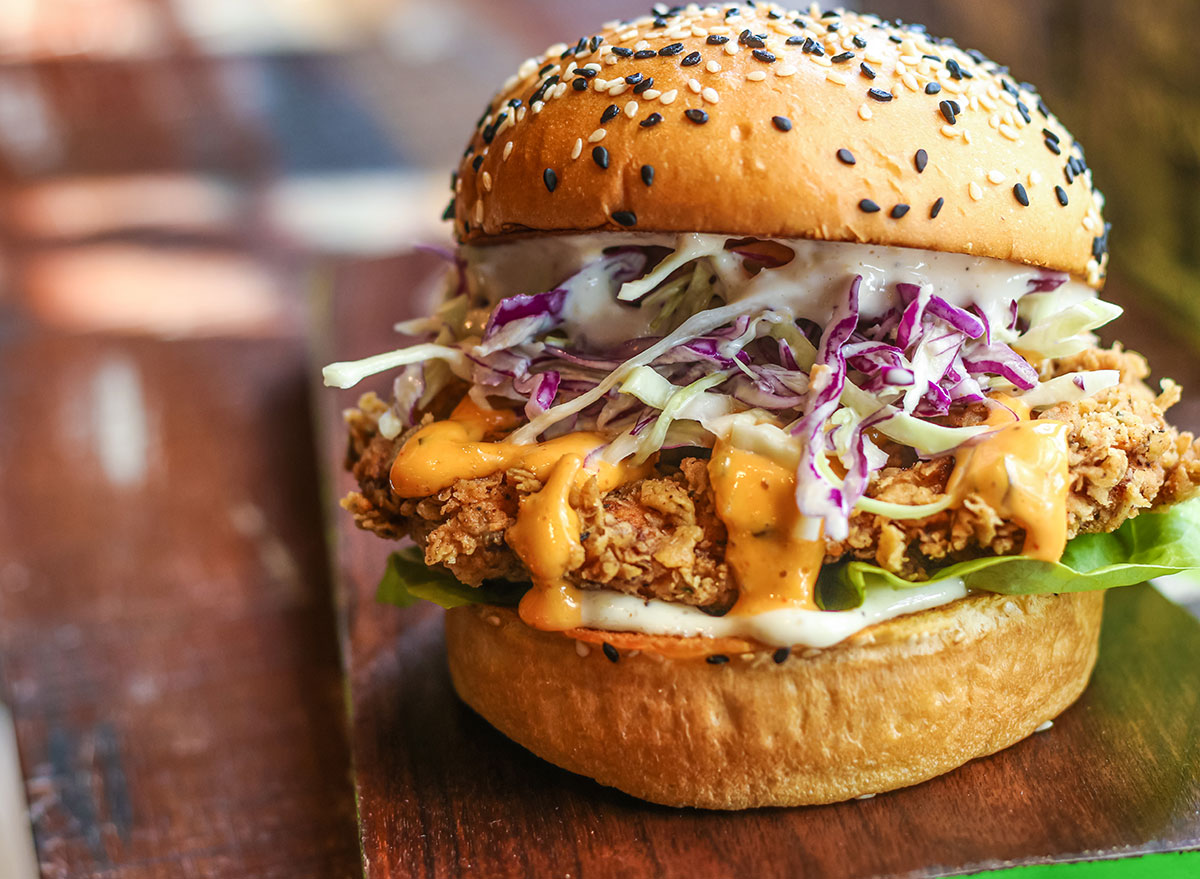
Your favorite deep-fried chicken sandwich may be a nice treat to enjoy once in a blue moon, but it’s exactly the best food to have on a regular basis. Ricci-Lee Holtz, RD and expert at Testing.com, mentions how deep-fried foods are easily one of the popular foods that damage your gut, and how they can promote the growth of unwanted bacteria as well as causing inflammation, gas, and cramping.
“[Fried foods] are high in cholesterol and fats and are not good for your gut and digestive system,” says Shannon Henry, RD at EZCare Clinic.
Here are the Dangerous Side Effects of Eating Fried Foods, According to Science.
Meal replacement bars
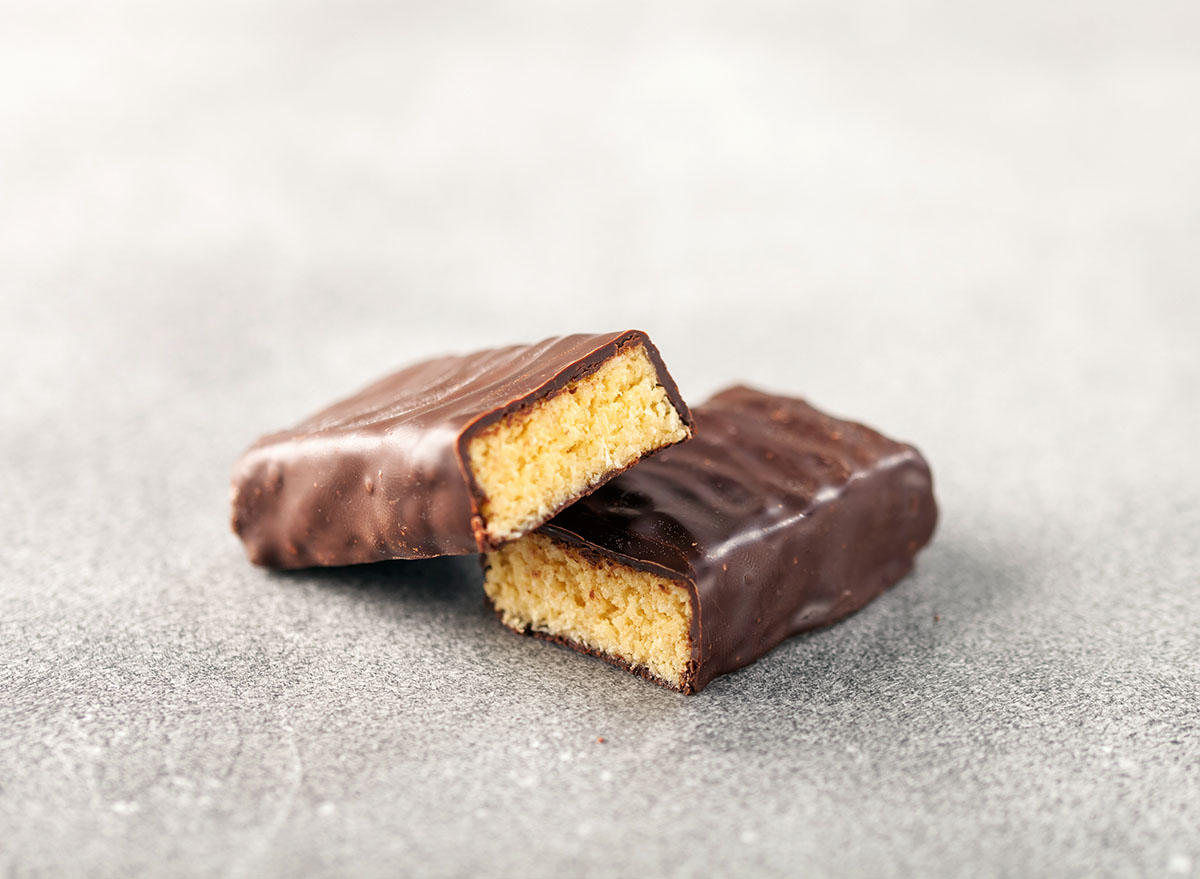
Not all protein bars are created equal. In fact, there are many protein bars—or other types of meal replacement bars—on grocery shelves that are full of unwanted added sugars and carbohydrates that are causing damage to your gut.
“Processed meal replacement bars are damaging to gut health and metabolism,” says Trista Best, MPH, RD, LD, a registered dietitian at Balance One Supplements. “Whether they be granola bars, cereal bars, and even protein bars, these processed meal replacements can lower your health for one key reason; added sugar or refined carbohydrates.”
“They are typically loaded with sugar and refined carbohydrates both of which are harmful to gut health,” says Best. “Added and excess sugar slows the metabolism by overloading the liver making it more quickly to be stored as fat. This simultaneously slows metabolism and causes weight gain. This added sugar feeds the bad bacteria in the gut which can lead to gut dysbiosis.”
Alcohol

Surprisingly enough, drinking red wine in moderation can actually do a lot for your body. Believe it or not, wine is even considered an essential part of the Mediterranean diet, which is the most successful diet for weight loss, according to the U.S. News & World Report.
However, like any rich food, having too much of it can cause issues with your health—especially your gut. Alcohol is definitely one of them.
“Too much alcohol may reduce the number of beneficial bacteria in the gut,” says Young.
Young also points out that having red wine in moderation can promote polyphenol content, which is a powerful antioxidant that helps your body to ward off disease. So a glass of red wine every now and then can actually help your body—but drinking a whole bottle at a time might not.
Artificial sweeteners
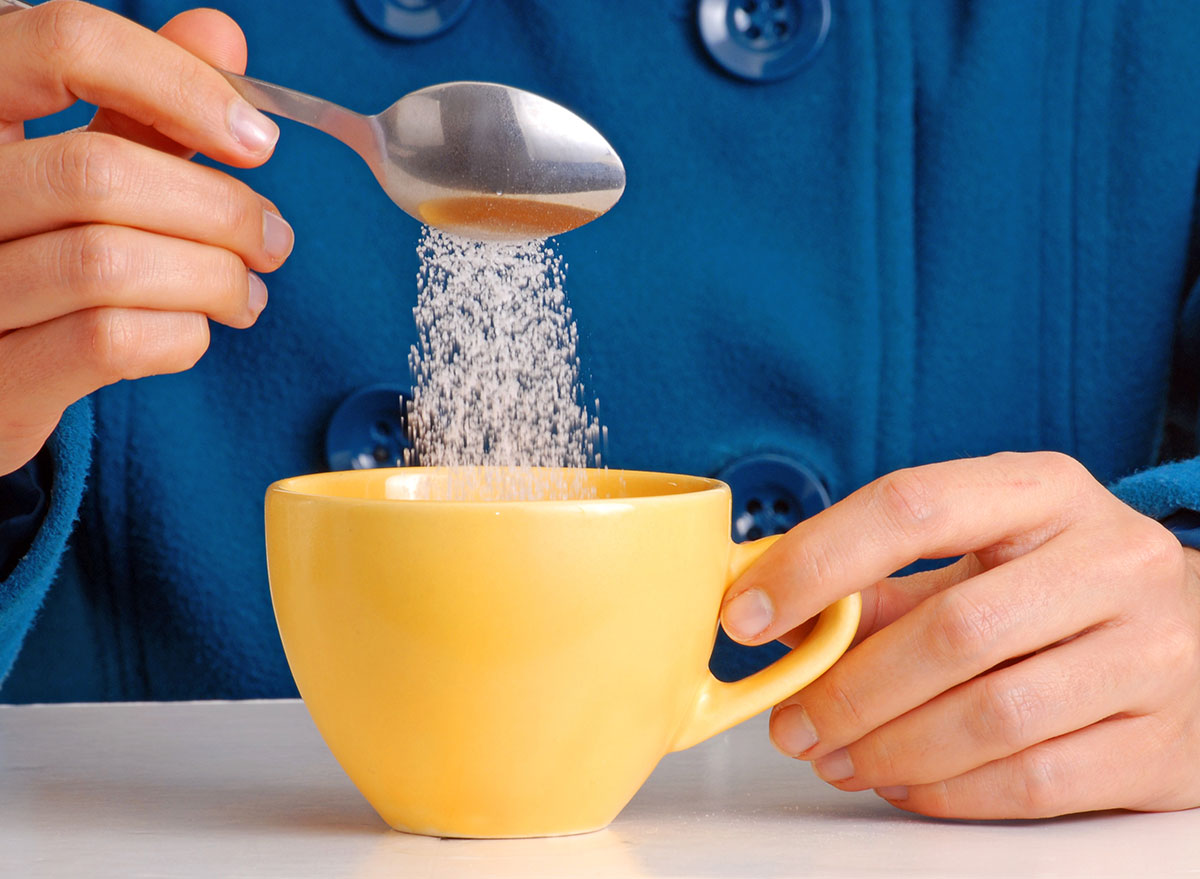
Artificial sweeteners may have been debunked as a food that causes weight gain or leads to chronic diseases, but they still aren’t the best for your body’s gut bacteria. In fact, according to Holtz, “artificial sweeteners can even cause a decrease in beneficial gut bacteria.”
One study published by the journal Advances in Nutrition points out how sweeteners can have an effect on gut microbiota, which proves that artificial sweeteners can cause alterations in the body’s metabolic pathways linked to glucose tolerance. Gut microbiota is the bacteria in your gut that help with digestion. A healthy gut microbiota means a healthier stomach and GI tract during digestion.
Artificial sweeteners can also have immediate effects on your stomach, as well as these long-term effects.
“By using too much artificial sugar/sweeteners which are made up of sorbitol cause cramps and diarrhea,” says Henry.
It’s safe to say that if you’re looking for something sweet, turning to a natural sweetener (like honey or maple syrup) and consuming them in moderation would be a much better choice for your body’s gut health. Or simply grab your favorite fresh fruit!
For more on improving your gut’s bacteria, here’s The Best Way to Eat for Your Microbiome and Improve Gut Health.